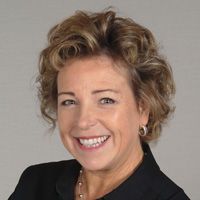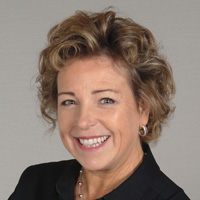Helping Loved Ones Through the Last Years
Even a financial professional can be caught unprepared when life doesn’t go as planned. Here are five things I learned with my own parents … and that I wish I had known before it all started.


Profit and prosper with the best of Kiplinger's advice on investing, taxes, retirement, personal finance and much more. Delivered daily. Enter your email in the box and click Sign Me Up.
You are now subscribed
Your newsletter sign-up was successful
Want to add more newsletters?

Delivered daily
Kiplinger Today
Profit and prosper with the best of Kiplinger's advice on investing, taxes, retirement, personal finance and much more delivered daily. Smart money moves start here.

Sent five days a week
Kiplinger A Step Ahead
Get practical help to make better financial decisions in your everyday life, from spending to savings on top deals.

Delivered daily
Kiplinger Closing Bell
Get today's biggest financial and investing headlines delivered to your inbox every day the U.S. stock market is open.

Sent twice a week
Kiplinger Adviser Intel
Financial pros across the country share best practices and fresh tactics to preserve and grow your wealth.

Delivered weekly
Kiplinger Tax Tips
Trim your federal and state tax bills with practical tax-planning and tax-cutting strategies.

Sent twice a week
Kiplinger Retirement Tips
Your twice-a-week guide to planning and enjoying a financially secure and richly rewarding retirement

Sent bimonthly.
Kiplinger Adviser Angle
Insights for advisers, wealth managers and other financial professionals.

Sent twice a week
Kiplinger Investing Weekly
Your twice-a-week roundup of promising stocks, funds, companies and industries you should consider, ones you should avoid, and why.

Sent weekly for six weeks
Kiplinger Invest for Retirement
Your step-by-step six-part series on how to invest for retirement, from devising a successful strategy to exactly which investments to choose.
When my parents downsized to a duplex, we thought we had their final years all figured out — finances, housing and medical care. Unfortunately, things rarely work out the way you plan them.
Within a few years of moving from our family home, my father started showing early signs of Alzheimer’s. Complicating the situation, my mother had increasing mobility issues and relied entirely on a scooter and a walker to get around. Initially, we had high hopes that my father would be able to take care of her in a quasi-assisted living environment. His diagnosis and diminishing independence changed all of that.
Looking back, you see the signs. For years he loved driving to the local forest preserve to take long walks. Suddenly he would find himself lost and not be able to find where he parked. With my mother unable to stop him from doing something he loved and unable to chase after him, strangers would call her to tell her he had been found and would help him back to his car. And there were many other worrisome things happening, like him leaving the stove on, leaving the house and forgetting why, and becoming increasingly frustrated by the growing limitations of the disease.
From just $107.88 $24.99 for Kiplinger Personal Finance
Become a smarter, better informed investor. Subscribe from just $107.88 $24.99, plus get up to 4 Special Issues

Sign up for Kiplinger’s Free Newsletters
Profit and prosper with the best of expert advice on investing, taxes, retirement, personal finance and more - straight to your e-mail.
Profit and prosper with the best of expert advice - straight to your e-mail.
Like many families in this situation, we never thought Alzheimer’s would happen to us. But when it did, we all knew that the future was going to be very different from what we had imagined. We felt a frightening sense of urgency to do something, anything, to make all of us better able to handle this unplanned future.
Leaving Home Is Hard
My mother, while of sound mind and unrelenting determination, began falling frequently because of her multiple sclerosis. The 911 responders were becoming familiar visitors to their home, which only added to our worry and sense of urgency to find a safer, more permanent solution. We knew we had to begin looking for a place for them as soon as possible. But how do you find the right place? Everywhere seemed too expensive, too fancy or too far away.
And once you move them to a new town, you need a new system of doctors, as well as transportation, drugstores and a new social support system. Concerns cascaded: How do you find the right caregivers and trust that they have your parents’ best interests at heart? How will you get them to the doctor once they can no longer drive?
Concerns mounted, and there were few professionals or organizations to help back then. You could search the Internet, but the options were limited.
We relied on referrals from the family doctor, friends and co-workers. Then we searched the old-fashioned way: countless phone calls and interviews of staff members of the few assisted living centers in the area. We also tapped into the local senior citizens council. Finally, we found a place in a nearby suburb that seemed like the best alternative to their duplex. But it required my father to lose his home, garden and the companionship of his beloved cat.
The move completely changed his life — literally from one day to the next. That’s when his Alzheimer’s symptoms significantly worsened. He went from early-stage to mid-stage within a little over three months. We were losing him fast, and it was terrifying. Before, we believed that nursing home care was at least five years away. Suddenly, it was the right here, right now.
Care Is Costly – Financially and Emotionally
Statistics say that three years is all you need in long-term care. My father was in full-time nursing care for a good solid six years. We spent almost $7,000 a month for both of my parents, $4,000 more than we had carefully planned for. I was familiar with long-term care planning, but I was not prepared for this.
But helping my father with finances was complicated. As Alzheimer’s overtook him, he became paranoid about his finances. He forgot that I was an investment professional and didn’t want my help. He wouldn’t give me access to his investments or the bills that needed to be paid. He wouldn’t let my mother help either, even though he tried to teach her a bit before the Alzheimer’s progressed.
One of the most difficult options that seemed to be heading our way was taking my father to court to set up a guardianship and have him declared incompetent. The whole experience was terrifying for me. And overwhelming for my mother. Luckily, we bypassed that route. Soon, my father’s diminishing awareness caused him to start caring less about his finances and maintaining control.
Expect a Role Reversal
I worried about my mother. She did a fantastic job caring for my father, but I knew she was neglecting herself. Once he passed away, focusing on her became easier. But switching the roles of parent and child is never simple.
Parents don’t want to be a burden on their kids. As they age they give up control of almost everything: their finances, their health and their choices. That’s hard on everyone, but especially parents who are most comfortable being the ones depended upon, and not dependent upon others.
As their child, you take it on because you love them and it’s what you want to do. I felt like, “I can’t begin to pay you back for what you did for me, so let me do this for you.”
That doesn’t mean they’re going to be OK with it.
Everything becomes a power struggle. My mother often said, “Remember, I am the mother.” And even though I knew she wasn’t in a position to be the mother, I had to bite my tongue. You have to learn how to communicate a completely different way. You can’t bark orders, but you can’t let things slide either, such as neglecting hygiene or not taking medication.
Repeatedly, I had to remind myself that I had to be the grown-up, and not the child, as much as I wanted to sometimes cry, stomp my feet and have it my way. Communicating with my mother was a balancing act of restraint and persistence.
Have a Conversation before the Crisis Hits
Planning for old age is a conversation no one wants to have, but take it from me, it’s something you need to do. Nobody wants to talk about when they’re going to die, but it’s not an “if.” Legal and financial considerations abound. Make a list.
Everyone should have at the very least a will, a health care power of attorney and a power of attorney for property. If your parents don’t have those, that’s a great way to start the conversation. Once this hurdle is crossed, ask to be introduced to the attorneys and be included in conversations.
Also, talk about catastrophic illness when you’re planning. No parent wants their kids burdened with picking up the pieces in the midst of a health crisis with no preparation whatsoever.
All roads lead eventually to financial preparedness. Talk about what will happen if the funds run out and care is still needed. Typically, when retired parents run out of money, they end up on Medicaid. If the kids have the ability, they pool their money to get their parents a nicer room at a Medicaid facility. They help pay for entertainment, clothes, maybe a short trip. Several of these facilities won’t kick them out once they are on Medicaid, but some will. It’s scary, because people are living longer as medical costs escalate, and not having enough money to be admitted to a facility really limits your options.
Coming to Peace – It Takes Time
Some advice I would have given myself on the outset of this journey is to pick the battles. Let your parent have their choice as much as possible. They have a truth in their head — it doesn’t have to match yours. And they do need a little control.
Many times, battles between adult children and aging parents come down to their own frustration and vulnerability. It has nothing to do with the child. But it is difficult to embrace that truth when you are in the middle of it.
Second, use your resources. There are a lot of them out there (so many more than when I was going through the process). Look to such resources as the AARP website, local senior citizens councils, as well as large social service organizations. And other people you know who are in the same boat qualify as an excellent resource, too. You don’t have to create a formal support system. Just talk about it, and find someone with whom you can relate. When you’re in it, it sometimes feels like it will go on forever, and it’s nice to know you’re not alone.
Finally, find peace in just making things a little better. We are so uncomfortable with aging and death in this country — it does us all a disservice. I could never do enough to make my mother’s life the way I wanted it to be. I wasn’t that powerful. I had to let go and make peace with the fact that I was doing everything I could to make the end better. That’s hard to do. You can’t fully prepare yourself for it. You just have to pay attention and appreciate the moments that do remain to spend time together. And when the end comes, you enter a new chapter of adulthood. You tidy up your parents’ earthly goods, you gather up your memories, and you move forward.
Note: Investment advisory services provided through TC Wealth Partners LLC, an investment adviser registered with the U.S. Securities and Exchange Commission. Trust services and retirement plan services are provided by the Trust Company of Illinois, a trust company chartered by the Illinois Department of Financial and Professional Regulation. Past performance is not indicative of future results. The content of this article is for guidance and information purposes only and is not intended to be construed as advice. Information provided is not intended to provide investment, tax or legal advice.
Profit and prosper with the best of Kiplinger's advice on investing, taxes, retirement, personal finance and much more. Delivered daily. Enter your email in the box and click Sign Me Up.

Nancy Bell is a Certified Financial Planner™, Certified Divorce Financial Analyst®, Chartered SRI Counselor™ with 25+ years of experience in personal comprehensive financial and wealth planning. She is a wealth adviser and voting member of the investment committee at TC Wealth Partners, located in Downers Grove, Ill.
-
 The New Reality for Entertainment
The New Reality for EntertainmentThe Kiplinger Letter The entertainment industry is shifting as movie and TV companies face fierce competition, fight for attention and cope with artificial intelligence.
-
 Stocks Sink With Alphabet, Bitcoin: Stock Market Today
Stocks Sink With Alphabet, Bitcoin: Stock Market TodayA dismal round of jobs data did little to lift sentiment on Thursday.
-
 Betting on Super Bowl 2026? New IRS Tax Changes Could Cost You
Betting on Super Bowl 2026? New IRS Tax Changes Could Cost YouTaxable Income When Super Bowl LX hype fades, some fans may be surprised to learn that sports betting tax rules have shifted.
-
 The 4 Estate Planning Documents Every High-Net-Worth Family Needs (Not Just a Will)
The 4 Estate Planning Documents Every High-Net-Worth Family Needs (Not Just a Will)The key to successful estate planning for HNW families isn't just drafting these four documents, but ensuring they're current and immediately accessible.
-
 Love and Legacy: What Couples Rarely Talk About (But Should)
Love and Legacy: What Couples Rarely Talk About (But Should)Couples who talk openly about finances, including estate planning, are more likely to head into retirement joyfully. How can you get the conversation going?
-
 How to Get the Fair Value for Your Shares When You Are in the Minority Vote on a Sale of Substantially All Corporate Assets
How to Get the Fair Value for Your Shares When You Are in the Minority Vote on a Sale of Substantially All Corporate AssetsWhen a sale of substantially all corporate assets is approved by majority vote, shareholders on the losing side of the vote should understand their rights.
-
 How to Add a Pet Trust to Your Estate Plan: Don't Leave Your Best Friend to Chance
How to Add a Pet Trust to Your Estate Plan: Don't Leave Your Best Friend to ChanceAdding a pet trust to your estate plan can ensure your pets are properly looked after when you're no longer able to care for them. This is how to go about it.
-
 Want to Avoid Leaving Chaos in Your Wake? Don't Leave Behind an Outdated Estate Plan
Want to Avoid Leaving Chaos in Your Wake? Don't Leave Behind an Outdated Estate PlanAn outdated or incomplete estate plan could cause confusion for those handling your affairs at a difficult time. This guide highlights what to update and when.
-
 I'm a Financial Adviser: This Is Why I Became an Advocate for Fee-Only Financial Advice
I'm a Financial Adviser: This Is Why I Became an Advocate for Fee-Only Financial AdviceCan financial advisers who earn commissions on product sales give clients the best advice? For one professional, changing track was the clear choice.
-
 I Met With 100-Plus Advisers to Develop This Road Map for Adopting AI
I Met With 100-Plus Advisers to Develop This Road Map for Adopting AIFor financial advisers eager to embrace AI but unsure where to start, this road map will help you integrate the right tools and safeguards into your work.
-
 The Referral Revolution: How to Grow Your Business With Trust
The Referral Revolution: How to Grow Your Business With TrustYou can attract ideal clients by focusing on value and leveraging your current relationships to create a referral-based practice.